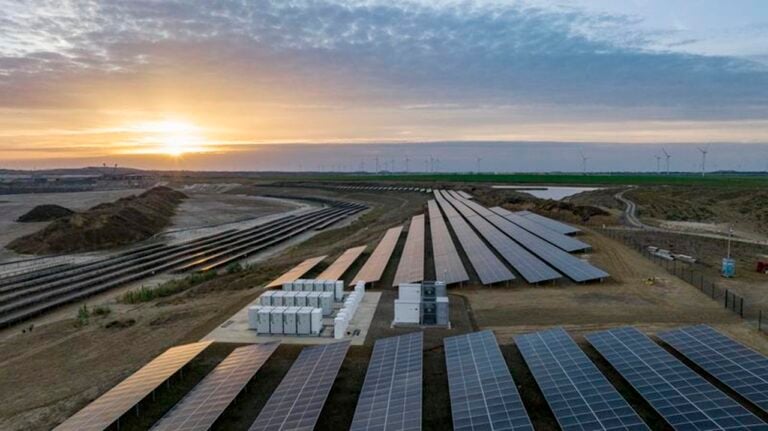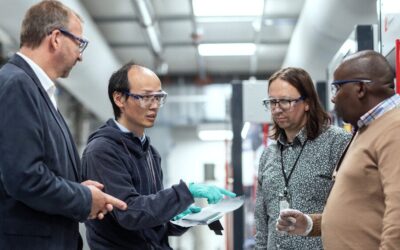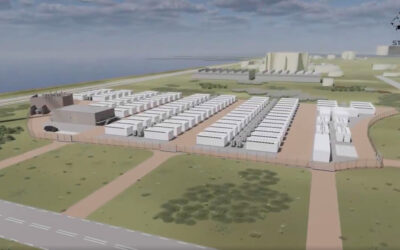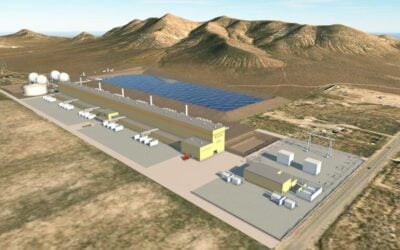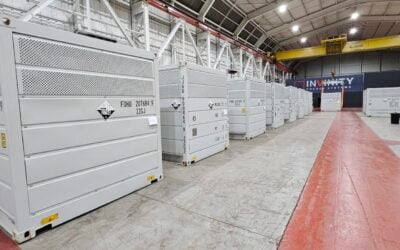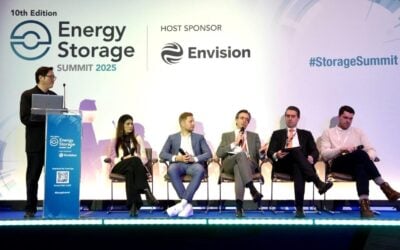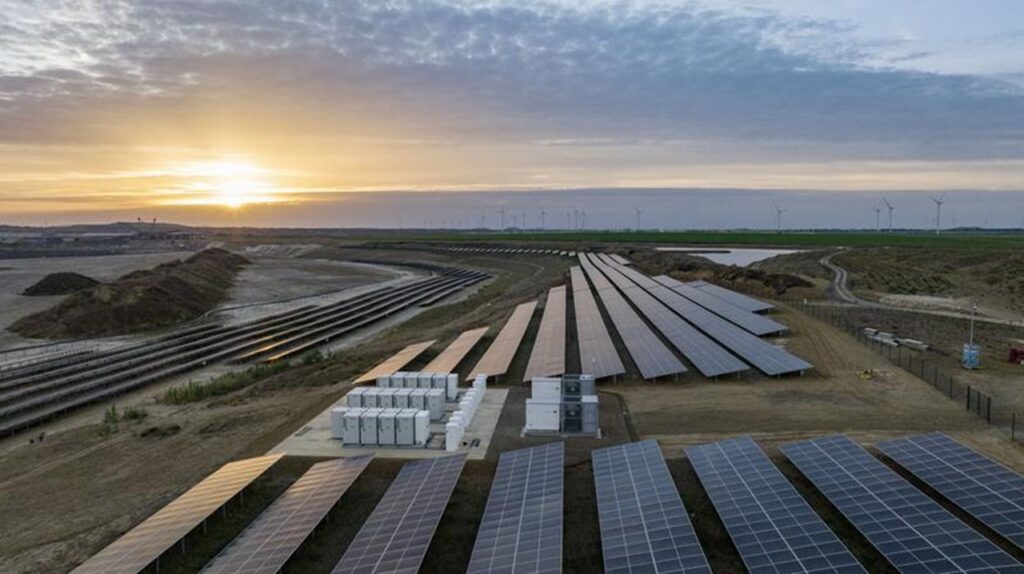
German utility RWE has commissioned 235MWh of battery energy storage systems (BESS) in Hamm and Neurath, in the state of North Rhine-Westphalia, Germany.
The BESS, which will have a capacity of 230MW and a storage capacity of 235MWh, will consist of 690 lithium-ion battery blocks. It will require around €140 million (US$146 million) to fully develop.
This article requires Premium SubscriptionBasic (FREE) Subscription
Enjoy 12 months of exclusive analysis
- Regular insight and analysis of the industry’s biggest developments
- In-depth interviews with the industry’s leading figures
- Annual digital subscription to the PV Tech Power journal
- Discounts on Solar Media’s portfolio of events, in-person and virtual
Or continue reading this article for free
RWE said the projects are scheduled to supply balancing energy to stabilise the electricity grid. The facility will also be virtually networked with RWE power stations in Germany, which will make it possible to control whether the storage units work alone or in conjunction with other power stations to supply balancing energy.
It is worth noting that this commissioning means that RWE has a global battery portfolio of around 1.2GW. This includes markets such as the US, where the German group is developing a 200MW standalone BESS in Colorado using Tesla 2XL Megapacks. RWE also recently broke ground on three BESS projects in Texas, totalling 900MWh.
This becomes Germany’s latest large-scale BESS to be commissioned in the country. Speaking to Energy-Storage.news, battery storage developer-investor BW ESS executive director Roberto Jimenez said the country was the “hottest market in Europe today from a development perspective.”
The country’s government introduced its first Electricity Storage Strategy in late 2023, and research commissioned by BESS system integrator Fluence around that time from consultancy Frontier Economics found that with a supportive policy framework in place, Germany’s cumulative installs could rise to 15GW/57GWh by 2030 and to 60GW/271GW by 2050.
The German market is also evolving in numerous other ways. In a post on LinkedIn, Fluence senior manager of policy and market development Lars Stephen pointed to the first GWh-scale projects soon to come online, 4-hour systems coming to market, the fact that the market is still not yet saturated and DSOs increasingly opting for BESS as four major trends for 2025.
Several clean energy developer-operators have entered the market in recent years as well, including the likes of Gore Street Capital, Aquila Clean Energy and Nofar Energy. BESS specialists like Eco Stor and Terralayr have entered the scene too.
Read Next
Norway-based startup Elinor Batteries has launched a new product, the Orkan DC Block, which it claims will deliver 30% more energy density than existing products.
Developer Lion Storage has successfully reached financial close on a 1.4GWh battery energy storage system (BESS) set to be developed in the Netherlands.
Toronto, Ontario-headquartered Hydrostor has secured a US$200 million investment for its advanced compressed air energy storage (A-CAES) projects both in Canada and globally.
Invinity Energy Systems and Frontier Power have partnered to deploy vanadium flow batteries under the UK Long Duration Energy Storage (LDES) procurement process.
Most Popular
Email Newsletter
This site is operated by a business or businesses owned by Informa PLC and all copyright resides with them. Informa PLC’s registered office is 5 Howick Place, London SW1P 1WG. Registered in England and Wales. Number 8860726.

